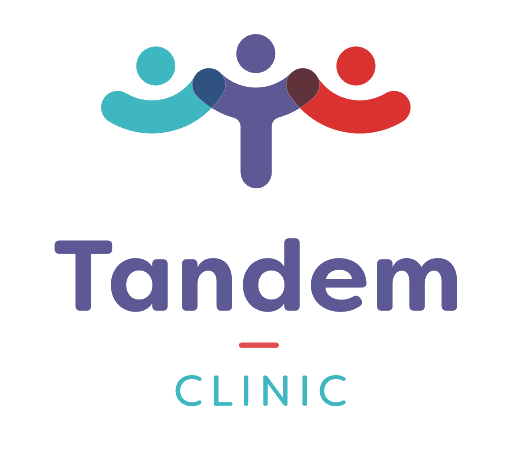Botanical Medicine for Mental Health
Botanical Medicine is one of the main modalities in naturopathic medicine. While the use of herbs for medicine was born out of tradition, the science behind it continues to emerge and uncover more of the ‘why’ behind its usefulness. In fact, many drugs have origins in plant medicine:
…and the list goes on, but you get the picture.
Herbal Constituents, Herbal Actions, & Synergy
Herbal constituents are the active plant molecules that confer medicinal properties that produce actions within the body. Each constituent may have several actions, and each plant has many constituents. Therefore each plant has many potential actions. These actions can differ based on which part of the plant is used. For example, Dandelion leaf is diuretic but its roots are not. Instead, dandelion root is beneficial to the liver. In making pharmaceutical drugs, a constituent with a particular action is isolated and concentrated to produce a desired effect. In herbal medicine, we use the whole (or whole parts of) plants to extract many constituents to get the intended effect. This enables us to take advantage of any synergy provided by the many plant constituents, which can be enhanced by combining several herbs with various actions.
5 Herbs for mental health
There are so many great herbs for mental health. The beauty of botanical medicine is being able to mix and match them for desired results that are specific to your individual needs. These are a few highlights of some of my favourites!
Avena sativa - Oats
Nutritive - high in vitamins E & B, iron, manganese, zinc, and calcium
Nervine tonic - nutritive to the nervous system, specifically
Relaxing - the active constituent, gramine (an indole alkaloid), has relaxant properties
Avena sativa or Oats are considered to be nutritive to the nervous system and connective tissue. The oat straw is high in silica and minerals and is beneficial for restoration of connective tissue, nerves, bone, muscle, tendons, and skin. The oat seed tops are neurotonic, making them great for cases of debility from anxiety, depression, and fatigue.
Bacopa monnieri - Brahmi
Adaptogen - helps the body adapt to the physiologic effects of stress
Cognitive enhancer - the active constituents, bacoside and bacosine (steroidal & triterpenoid saponins), enhance nerve impulse transmission to balance neurotransmitter levels in the brain
Memory enhancer - bacoside & bacosine also increase protein synthesis in the area of the brain responsible for long-term memory
Nervine tonic + sedative - balances and calms the nervous system
Bacopa enhances blood flow to the brain and is a great herb for improving memory, concentration, mental performance, and overall cognitive function. It’s a great herb for studying or for professionals looking to gain an edge on their work performance.
Ginkgo biloba - Ginkgo
Antioxidant - flavonoids are constituents found in many plants that generally confer antioxidant benefits
Cerebral circulatory stimulant - flavonoids also promote blood flow to the brain
Neuroprotective - ginkgolides are thought to be the constituent responsible for neuroprotective effects, though their effects are likely enhanced by the combined effect of antioxidants and increased cerebral blood flow —> synergy!
Cognitive enhancing - improves memory, concentration, and brain function
Ginkgo is a great herb for cognition! It is helpful in the prevention of age-related cognitive disorders such as Alzheimer’s/dementia and for enhancing cognitive performance.
Hypericum perforatum - St. John’s Wort
Antidepressant - hypericin and hyperforin are the constituents responsible for the antidepressant effects of St. John’s Wort.
Hypericin is thought to block the degradation of neurotransmitters (signalling molecules in your brain that are implicated in mood and motivation)
Hyperforin inhibits neurotransmitter reuptake
Both actions allow the neurotransmitters below to stay active in your system longer to exert their effects, helping to counter any chemical imbalances that may be a factor in depression.
Serotonin - the happy neurotransmitter
Norepinephrine - adrenaline
Dopamine - the neurotransmitter associated with drive and motivation
Lavendula officinalis - Lavender
Nervine sedative - sedating to the nervous system promoting calm or sleep at higher doses
Carminative - reduces abdominal cramping, bloating and indigestion
Anxiolytic - reduces anxiety
Lavender helps to soothe and settle the stomach, as well as the nervous system. It is great for stress headaches, helping with depression, anxiety and insomnia.There are many great botanicals for helping to restore mental health and balance that can be used alone or in combination with other therapies as part of an individualized treatment plan. Be sure to consult with a health practitioner before adding any herbs to your health regimen, as they may not be suitable for your condition and may interact with other medications or products you may be taking.
In health,
Dr. Jacalyn Sieben, ND
Click here to book an appointment with Tandem Clinic: Online Booking


